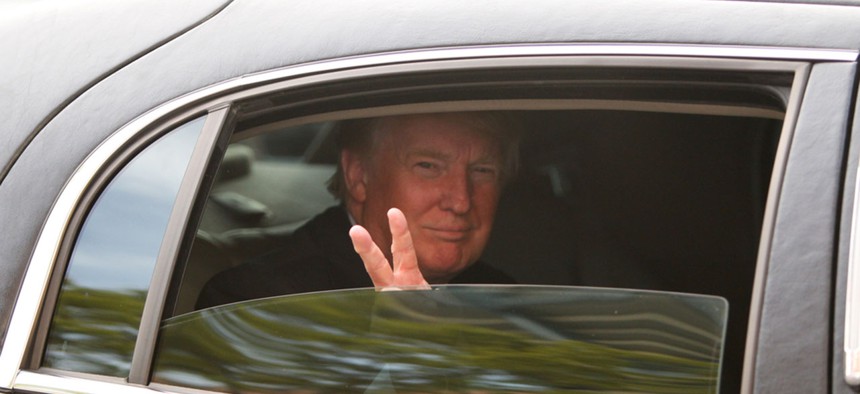
Debby Wong/Shutterstock.com
Trump Wants to Replace Obamacare With an Even Further Left-Wing Plan
And it might be exactly what his supporters want.
Donald Trump has said in the past that he wants to replace Obamacare with “something terrific,” but never really explained what that would be. On Monday, Jan. 25, the frontrunner for the US Republican presidential nomination finally got specific.
Addressing a crowd in Farmington, New Hampshire, Trump repeated his promises to repeal the Affordable Care Act behind Obamacare (always a sure bet with conservative voters). Then he called for national social insurance program Medicare to be able to negotiate with pharmaceutical companies in order to lower drug prices—a decidedly liberal position that most Republican politicians reject.
Trump claimed such a policy would save Medicare “$300 billion a year,” according to the Associated Press.
“We don’t do it. Why? Because of the drug companies,” he added, echoing president Barack Obama and Democratic candidates Hillary Clinton and Bernie Sanders, all of whom have criticized the pharmaceutical industry’s price points and called for greater negotiating powers on behalf of Medicare.
This new stances recalls some of Trump’s earlier pronouncements regarding universal health care: “I want people taken care of in the country, okay? You can call it anything you want,” he told radio host John Fredericks in Jul. 2015. “I would put forward a comprehensive health care program and fund it with an increase in corporate taxes,” he added.
It’s certainly an odd policy proposal to come from the leading Republican candidate. And importantly, it highlights yet another instance where Trump diverges from the establishment pack, to his benefit.
While you could argue that Trump’s approach to health care is just as scattershot and nonsensical as the rest of his campaign, it’s worth noting that his support base is among working-class whites—people with families and budgets. A Sept. 2015 poll from Public Policy Polling found that half of Trump’s supporters nationwide support increasing the federal minimum wage to at least $10 an hour—in other words, they’re money-conscious people. And to them, the difference between market-priced and Medicare-negotiated pharmaceuticals may be significant.
There may already be an unspoken affinity for socialized medicine among Republican voters. A Commonwealth Fund poll conducted in 2013 and 2014 found that 74% of Republicans enrolled were satisfied with their Obamacare coverage. A Gallup poll from 2014, however, found that 87% of Republicans disapproved of the law that created Obamacare. In other words, it’s not “-care” that Republicans object to. It’s “Obama.”
Replacing Obamacare with a similarly progressive health-care policy (“Trumpcare,” as one of Texas senator Ted Cruz’s super PACs has taken to calling it), might seem hypocritical given the party’s history. But that doesn’t make it any less shrewd a campaign strategy.
(Image via Debby Wong / Shutterstock.com )






